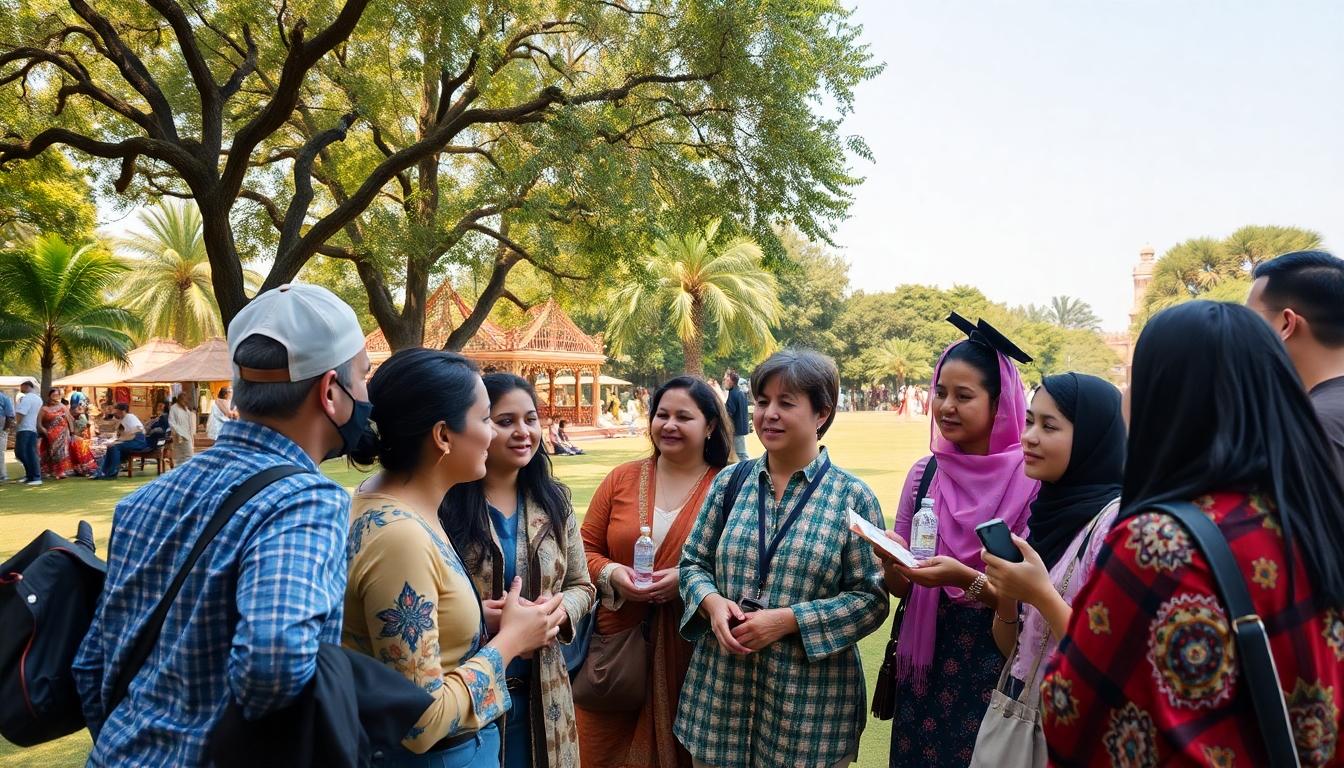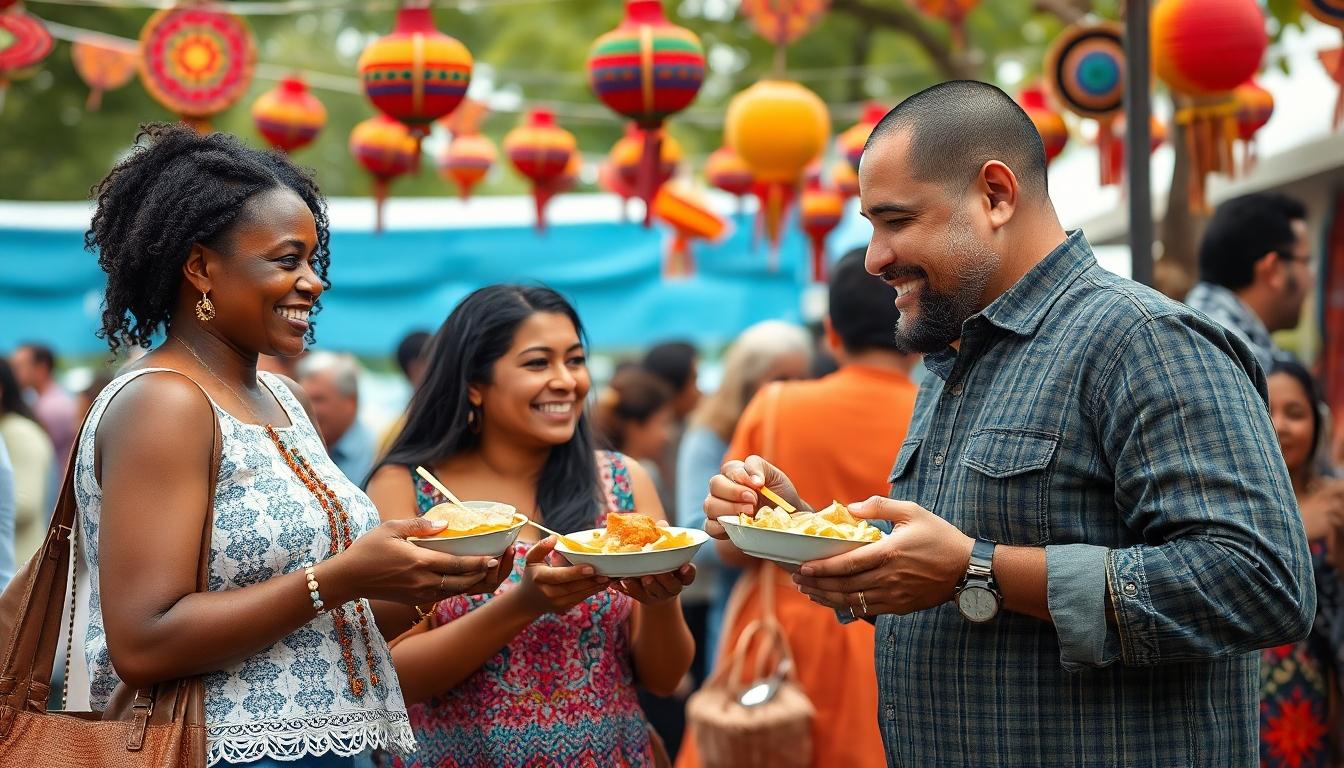Table of Contents
ToggleCultural shock can feel like stepping into a carnival funhouse—exciting, disorienting, and occasionally leaving you questioning your sanity. When someone finds themselves in a new culture, they often face a whirlwind of unfamiliar customs, languages, and foods that can make even the most seasoned traveler feel like a fish out of water.
Imagine biting into a dish that looks delicious but tastes like something your grandma would never approve of. That’s cultural shock in action! It’s a wild ride that challenges perceptions and often leads to hilarious misunderstandings. Understanding this phenomenon not only prepares travelers for their adventures but also opens the door to a world of enriching experiences. So buckle up as we explore the ups and downs of cultural shock, and maybe even find a few laughs along the way.
Understanding Choque Cultural
Cultural shock occurs when individuals experience disorientation upon entering a new culture. This phenomenon can lead to a mix of confusion, frustration, and even humor as people navigate through unfamiliar environments.
Definition and Origins
Cultural shock refers to the feelings of anxiety and dislocation that arise when someone encounters a different culture. This term originated in the 1950s when anthropologist Kalvero Oberg analyzed the transitional experiences of travelers. It encompasses a range of emotions, including homesickness and surprise, as individuals adjust to new social norms, languages, and customs. Understanding these origins helps to clarify why cultural shock is a common experience for many.
Common Scenarios
Common scenarios of cultural shock include language barriers, unexpected social customs, and different culinary practices. Travelers might find themselves struggling to communicate due to unfamiliar phrases or accents. They often face surprises in social behavior, such as greetings or expressions of politeness. Food, too, plays a significant role; tastes and presentation can challenge preconceived notions about diets. These experiences can lead to memorable anecdotes and moments of personal growth.
Impacts of Choque Cultural

Cultural shock can significantly influence individuals in various ways. Both emotional and social aspects undergo transformations during this experience.
Emotional and Psychological Effects
Feelings of anxiety often surface when adjusting to a new culture. Disorientation, confusion, and frustration can lead to distress. Individuals may experience mixed emotions when confronted with unfamiliar customs or languages. Personal growth occurs as individuals navigate these challenging situations. Over time, resilience builds as they learn to adapt. Humor emerges as a coping mechanism, illustrating a positive shift in mindset. Emotions fluctuate throughout this process, contributing to a deeper understanding of diverse cultures.
Social and Behavioral Changes
Interactions with others change due to cultural shock. Individuals may find themselves altering their communication styles to connect better. Adaptability becomes crucial as they embrace new social norms. Reactions to different customs can lead to unexpected friendships and enriching relationships. Behavior shifts towards openness, encouraging curiosity about diverse perspectives. Individuals often develop a more global mindset, enhancing their appreciation for cultural diversity. Ultimately, these behavioral adaptations foster stronger social connections in unfamiliar environments.
Coping Strategies for Choque Cultural
Coping with cultural shock involves practical techniques and community resources. Individuals who navigate these unfamiliar waters often rely on various strategies to ease their transition.
Personal Adaptation Techniques
Consider maintaining a journal to document feelings and experiences. Journaling helps process emotions and track personal growth. Engaging in local activities promotes immersion and understanding of the new culture. Focus on learning common phrases in the local language, as this fosters communication and builds confidence. Familiarizing oneself with customs can alleviate feelings of confusion. Seeking out familiar foods can provide comfort, bridging the gap between cultures. Setting realistic expectations reduces frustration and enhances enjoyment of the experience.
Community Support and Resources
Connecting with fellow expatriates creates a support network. Online forums and local social media groups offer valuable insights and camaraderie. Enrolling in cultural orientation programs provides essential information about local customs and laws. Local cultural centers often host events, fostering community engagement. Volunteering helps build relationships and offers opportunities for deeper cultural understanding. Building friendships with locals enriches the experience and fosters acceptance. Seeking assistance from mental health professionals can also provide coping strategies for managing anxiety and stress.
Case Studies on Choque Cultural
Cultural shock manifests differently across various countries and experiences.
Examples from Different Countries
Travelers often face unique challenges based on local customs. In Japan, greeting etiquette can be puzzling. Bowing replaces handshakes, leaving newcomers unsure. Adjusting to such subtleties can provoke feelings of isolation. Brazilian festivities, with their vibrant street culture, may overwhelm newcomers who are unused to communal celebrations. Language differences add another layer; navigating menus or asking for directions can engender confusion. Meanwhile, in Spain, late meal times surprise many. Embracing these cultural quirks often provides memorable insights.
Success Stories of Adaptation
Numerous individuals successfully adapt to new cultures, turning challenges into enriching experiences. A student studying in Italy documented her struggles with Italian cuisine. After a few mishaps, learning to cook traditional dishes allowed her to bond with locals. Another traveler in India embraced local customs, finding joy in participating in festivals. He built friendships through shared experiences. A professional relocating to Germany focused on language skills, attending classes that quickly improved his confidence. Collectively, these stories illustrate resilience and the potential for personal growth through cultural shock.
Cultural shock is an inevitable part of the travel experience that can lead to profound personal growth. Embracing the confusion and discomfort allows individuals to adapt and thrive in new environments. By leveraging humor and community support, travelers can transform their challenges into enriching stories that enhance their appreciation for diverse cultures. The journey through cultural shock ultimately fosters resilience and a deeper understanding of the world. As they navigate this carnival of experiences, travelers discover not just new places but also new aspects of themselves.







